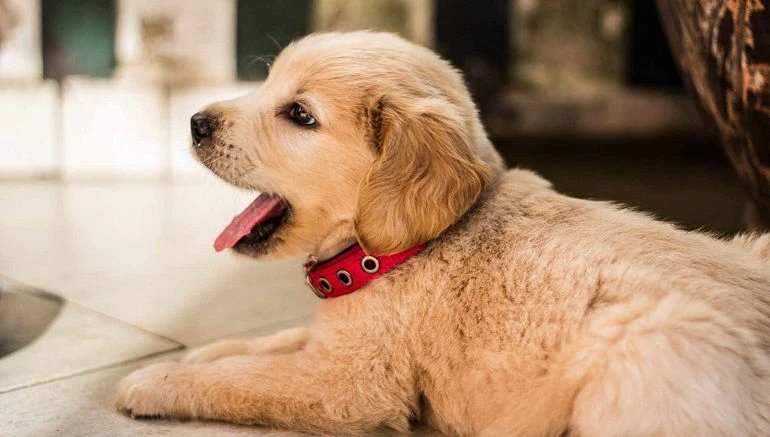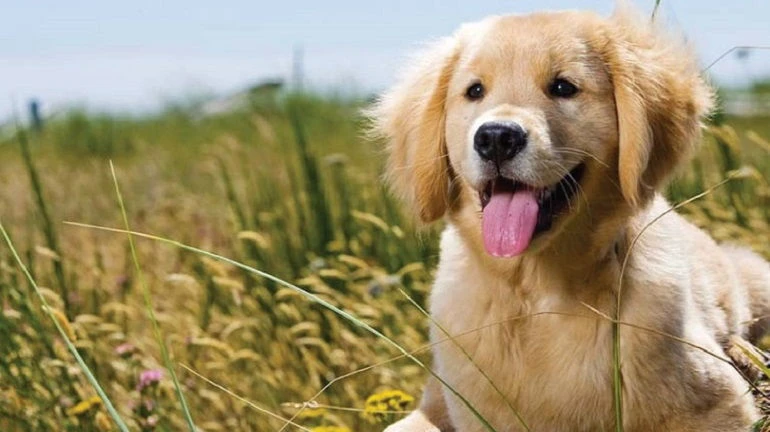Do Puppies Breathe Fast? 4 Common Causes & Solutions
by Patricia Jackson
It can be very nerve-wracking for pet parents to watch their puppies breathe faster than usual or hyperventilate, and this is more so when you do not know the underlying cause. But, as a pet parent, chances are you have gone through an episode of watching your pet breathe rapidly.
In many instances, there is little to worry about, as many puppies hyperventilate when excited. However, for other situations, it can be a sign of an underlying issue. Therefore, you need to understand how to identify the problem and some of the common causes.
What is Considered Fast Breathing?

Regardless of how long you have owned dogs, it is not always easy to tell when your puppy is not breathing how it should if you do not understand its breathing habits. Therefore, it is crucial to always start by figuring out the pet's regular respiratory rate.
Depending on its general health and activity level, an adult dog has 10 to 30 breathes per minute, while for puppies, it is between 15 and 40.
You can easily measure your pet's respiratory rate when it is asleep or relaxing. Here you need to set up a timer and count the chest expansions and contractions. Repeat this several times in the day, and you should get a more accurate number.
When a puppy starts breathing fast, the most apparent sign is super-fast chest expansion and contractions. But, there are other signs like keeping their mouth open with the tongue out.
Common Causes of Breathe Fast at Puppy

Although the actual cause of fast breathing can vary from one pup to another, the following are the most common ones.
1. Excessive Heat
When a dog is exposed to excessive heat, it has to find a way to cool down. In most cases, the pet starts panting as this is a natural way of regulating body temperature. Unlike humans that can cool down by sweating, dogs do not have sweat glands on their skin, and their thick fur cannot allow them to sweat.
Panting entails breathing in through the nose and releasing the air through the mouth. When doing it, the pet takes breathes faster than usual as it circulates the cool air through the body to lower its internal temperature. The best thing you can do here is helping the pet cool down faster by turning up the air conditioner and giving it some cold water.
2. Stress and Anxiety
Puppies get easily stressed and anxious when you introduce them to unfamiliar environments such as a new home. One of the typical signs of stress and anxiety in puppies is more rapid breathing.
Since the puppies will be confused and experience some sadness after being removed from their familiar place, they cannot control their breathing well. Things should get better as the pet acclimatizes and settles in the new home. But, you can help by comforting it with some petting and treats.
3. Over-Exertion
Excessive physical activity, whether the dog is playing or just running around, often leads to hyperventilation. As the dog uses up a lot of energy, it ends up worn out, and so when it is resting, chances are the pet will be breathing faster than usual.
The pet's internal temperature increases significantly from its over-exertion. Therefore, it has to start panting to cool down. Here, the best you can do is help it cool down faster by keeping the space cool and giving enough cold fluids.
4. Sleeping
Fast breathing is quite common when puppies are sleeping, and in most instances, it is often a result of their dreams. It is more common for puppies than adult dogs, but it is a normal part of their development that should not worry you.
In most instances, rapid breathing will occur in the REM sleep stage, where the canine experiences vivid dreams that can horrify or excite the pup. Regardless of the kind of dream, fast breathing should stop once the pet is awake. There is nothing you can do here to help, and it is essential to avoid waking up the dog as it can bite you unknowingly.
Conclusion
Fast-breathing or hyperventilation is quite common in puppies, and in most instances, there is hardly anything to worry the pet parents.
In most cases, it results from over-exertion, excessive heat, or anxiety, and by keeping your pet comfortable and helping it cool down, you can help bring back the breathing to a regular rate.
The only time you might need to worry is when other symptoms like fever and chills accompany fast breathing, or there are no identifiable causes.
 |
 |
 |
 |

About Patricia Jackson
Patricia just simply loves pets.
When she was eight years old, her parents got her a beautiful Maine Coon as a gift; and later an affectionate Husky.
Since then, she has raised them as her children; done minor first aid, taken in strays, administered antibiotics, bottle fed them when sick, and even midwifing.
Pat received her bachelor's degree in computer science at Univercity of Califronia Davis. She really hopes to transofrm her programming skills into something that really helpful for all pets someday. For now, lets just do that through writing.
Thoughts on "Do Puppies Breathe Fast? 4 Common Causes & Solutions"
 |
 |
 |
 |
Pet Care Tips
You can Get FREE Gifts. Furthermore, Free Items here. Disable Ad Blocker to receive them all.
Once done, hit anything below
 |
 |
 |
 |